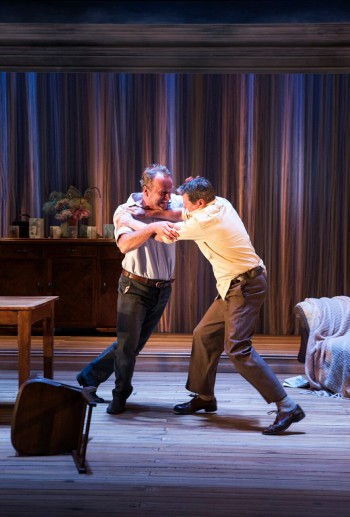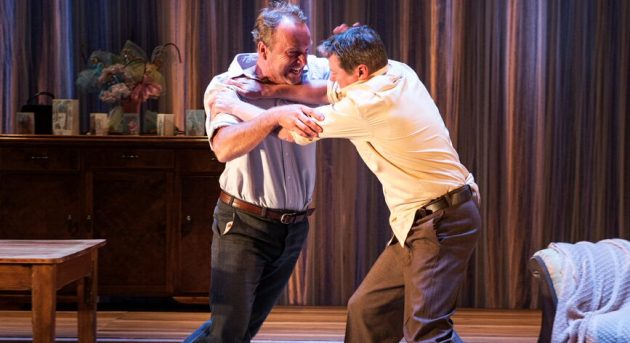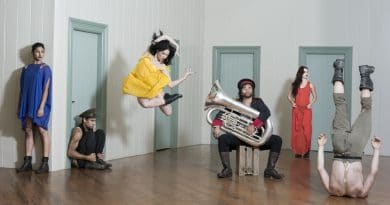Summer of the Seventeenth Doll in Adelaide

Just about every Australian knows about “The Doll”, but not everyone has had the opportunity to see it. It is a play that has become part of Australia’s history and psyche and one that every Australian should see.
Geordie Brookman admirably directs this production in the play’s 60th anniversary year, with a fine cast, all masterfully bringing out the unravelling of relationships, the intensity of habit, the expectations of permanence, the struggle to find stability, and the resistance to change.
Barney and Roo, cane cutters from Queensland, come down to Melbourne for 5 months of Summer every year to be with their girlfriends Olive and Nancy. So why should this 17th year be different? Nancy isn’t there because she decided to get married to someone else, and Olive’s friend Pearl has been recruited as a replacement for Barney. Roo has been usurped as team leader to a younger bloke (who pops in later) has back trouble and is broke, so things are different for him too. Things unravel from then.
Elena Carapetis shines as the bi-polar Olive. Her excitement at the prospect of the guys’ arrival is neatly balanced by her frantic rejection of the prospect of marriage to the ever faithful Roo (Chris Pitman). Lizzy Falkland shimmers as Pearl, part straight-laced, part willing, tantalising Barney the boozing philanderer (Rory Walker) with her on-again, off-again uncertainty. The two blokes work well together – great mates so that their intensity drives them into battle when all is not running to plan, and they have to make compromises. Pitman and Walker carry this off convincingly, Barney not knowing where he is going, and Roo wanting “what I had before”, as it becomes clear they are heading in different, if unknown directions.
[pull_left]a classic can survive, and 60 years later, still have immediate relevance to the ever-changing, yet ever the same human condition[/pull_left]
Any constancy in this turmoil of emotion is offered by Olive’s grumpy but pragmatic old Mum, Emma, beautifully portrayed by Jacqy Phillips, as a prototypical post war unadventurous, housewife always in an apron, with very neat delivery of some of the funniest lines. Annabel Matheson is charming as Bubba, the young wide-eyed next door neighbour who also has to face a bit of growing up as her real name comes to the fore, and as she accepts an invitation from Johnny Dowd, Roo’s young supplanter (Tim Overton), who unwelcomely drops in.
Lawler’s writing is still delightfully relevant, peppered with vernacular Aussie-isms. His structure neatly builds characters and their relationships by having them share the stage in a series of pairs as the tension builds and releases, sometimes lying to themselves as well as to each other as the growing complexity of denial, avoidance and fear of change builds to a fragmented conclusion (and they didn’t live happily ever after).
The neat set by Pip Runciman is far from the original cluttered, multi-coloured 1950’s suburban lounge room. With its wide, simple spaciousness the crumbling individuals could be posed in a lonely expanse. All the walls are scrims which could be lit (by Nigel Levings) in varying moods, and could reveal the outside as well as the other rooms, where the actors could be still present when they were not. The music by Quentin Grant was sensitively written and used to emphasise fittingly the emotional content, as in a film of the fifties. These mechanisms combine with the acting and direction to show how a classic can survive, and 60 years later, still have immediate relevance to the ever-changing, yet ever the same human condition.



